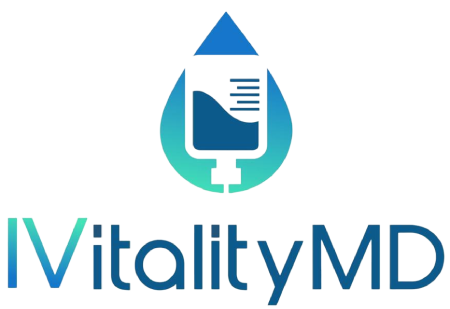Homeopathy is a unique yet contentious practice in the world of alternative medicine. But is homeopathic treatment effective? If yes, what is the success rate of homeopathy?
Proponents appreciate its comprehensive approach and minimal adverse effects, while critics dispute its scientific foundation. With IVitality, explore the subject that has inspired various debates, researches, and their conclusions – is homeopathic treatment effective?
What is the Success Rate of Homeopathy?
To know, ‘Is homeopathic treatment effective?’, it is essential to go through scientific research to determine its success rate.
In a double-blind study, 500 people with classical influenza were randomly assigned to two groups: one received the homeopathic medicine Oscillococcinum and the other a placebo. Participants took their rectal temperatures twice daily and reported the presence or absence of symptoms, such as headache, stiffness, lumbar back pain, joint pain, shivering, cough, runny nose, and weariness.
The homeopathic group had a more significant proportion of those healing after 48 hours of therapy (17%) than the placebo group (10%). The study was seen differently based on one’s perspective:
- The authors thought that the findings were inexplicable and required additional investigation.
- Homeopaths said that if they could have personally tailored the cure to each instance, the recovery rate would have been as high as 90%. Nonetheless, good results were found even with a limited use of the therapy (Ferley, 1989).
The Fundamentals of Homeopathic Cure
Before assessing the adequacy of this treatment, going over the fundamental ideas of this comprehensive homeopathic approach is essential.
Homeopathy was established in the late eighteenth century by Samuel Hahnemann. It depends on the rule of ‘like fixes like.’ This expression shows that a medication that causes side effects in a sound individual could, when weakened, urge the body to mend similar side effects in a debilitated individual.
Click here to read about what are the benefits of homeopathy.
The Potentization Process
The process of potentization is central to homeopathy. In this procedure, the practitioners use chemicals that are repeatedly diluted and succussed (vigorously shaken).
Proponents say that this procedure transmits the chemical’s therapeutic energy to water, even in highly diluted proportions, resulting in an intense treatment that lacks the toxicity of the original material.
The Individualized Approach
Homeopathic practitioners emphasize individualized therapy. Instead of addressing certain diseases, they concentrate on each patient’s individual symptoms and features. This tailored approach targets the underlying causes of sickness and activates the body’s healing processes.
The Vast Landscape of Homeopathic Research
The scientific examination of homeopathy has been ongoing, with conflicting findings. Some research shows promising results, while others ascribe any observed improvements to the placebo effect.
The absence of a demonstrated logical clarification for homeopathy has expanded questions in the clinical local area, compelling war of words about, ‘Is homeopathic treatment effective?’.
Is Homeopathic Treatment Effective?
Differentiating between the placebo effect and actual therapeutic benefits is one of the most challenging aspects of evaluating homeopathy’s efficacy. Proponents guarantee that the superior evident effect might be because of the patient’s belief in the treatment instead of the actual treatment. Defenders contend that homeopathy’s all-encompassing methodology regards the person, as a whole, adding to its efficacy.
Anecdotal Evidence and Patient Testimonials
While scientific research gives vital insights, anecdotal (or unscientific) data and patient testimonies are equally crucial in determining the success of homeopathy.
Many report excellent results from homeopathic therapies, citing improvements in various ailments. However, the subjective character of such testimonies makes it difficult to reach firm conclusions.
How Accurate is Homeopathy?
Healthcare professionals praise homeopathic remedies for their role in chronic diseases, where conventional treatment may provide minimal relief. These therapies have been reported to be beneficial for allergies, autoimmune diseases, and chronic skin issues.
The homeopathy holistic approach considers mental, emotional, and physical components and is consistent with homeopathic principles.
Limitations and Criticism
Despite its proponents, homeopathy is heavily criticized. The lack of uniformity in remedies and dilutions is a severe problem, as is the absence of a well-defined scientific framework.
Skeptics contend that any reported results are most likely the result of placebo reactions. Using homeopathy as the only therapy for severe conditions might cause delays in obtaining evidence-based medical care.
The Bottom Line
Studying, ‘Is homeopathic treatment effective?’ remains a complicated and varied issue in the debate. While scientific data is equivocal, anecdotes and personal experiences indicate that some people may benefit from homeopathic therapy. As with any medical method or functional medicine services, you must make educated judgments by examining the nature of your ailment, talking with healthcare specialists, and understanding the limitations and debates surrounding homeopathy. The efficacy of homeopathic treatment may differ from person to person. Therefore, it is critical to approach such options with an open mind and discerning eye!

